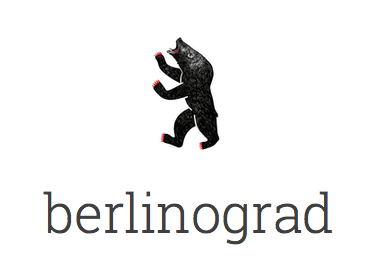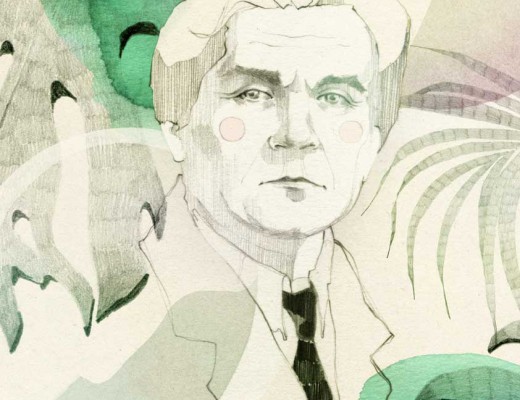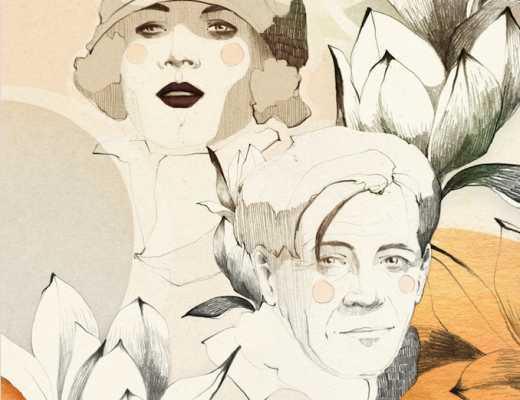Marina Cvetaeva is one of the most important Russian poets of the 20th century. Ani Menua got to know her in the café “Prager Diele”, where an evening with Ilja Ehrenburg took place by the end of May 1922. Ani invited her to a soiree in her atelier to find out more about her and was surprised, how well she mastered German.
Аni Menua:
Thank you for accepting my invitation.
Marina Cvetaeva:
I am glad we get to know each other, so thank you for inviting me.
А. M.:
People, who know you, daydream of you as an incredibly tender and fragile woman. Tell me, does this picture correspond to what you feel about yourself?
M.C.:
I guess it might even be true, yes, I am a fragile but at the same time a very strong woman. The fragility is part of my nature and I do not act against myself. So, I learned to handle it.
А. M.:
Fragility and strength are very compatible with each other, they are two sides of the same principle. Whoever pushes this fragility to watch it by anyone must be cruel.
M.C.:
You must admit that you are fragile, because your own fragility is the object of your art, making it accessible to a considerable amount of people. Being an artist, you strip mentally and put off all external protection. Beyond that life is incredibly hard for every human being in these days, for all the heroes of our time. I wish we would be born with this knowledge so that we might not be prepared for what might come but have at least a faint idea of it.
А. M.:
What do you mean?
M.C.:
What time is it, in which we live? Life is a single struggle for survival. People see their neighbours and relatives die because they starve and fight in the name of the revolution, in the name of the nation, in the name of the fatherland. There is nothing worse than to see your own child die because of human banalities.
А. M.:
How different is Moscow from Berlin?
M.C.:
Before I came to Berlin, I hoped to find the warmth and love that has been lost among the people of Moscow. But it is not their fault, they force people to become inhuman. Life circumstances drive people to despair. It’s not just your own suffering that makes life so excruciating, but also the suffering of others. People burn alive. I feel like I’m losing my mind. Any possibility of even seeking spiritual support with others is nullified. There is nothing. The suffering is omnipresent to everyone and everywhere to an unbearable extent. And now I am here.
А. M.:
It sounds horrifying. Why Berlin?
M.C.:
It’s not just what I like about Berlin, but more of what I like about Germany: France was too simple for me, Russia was too heavy, Germany is the perfect encasing for my mind: It is all mine, and in it I am whole!
А. M.:
In principle, people suffer similar problems here and there. We complain about inhumanity and disinterest. Still it is an individual phenomenon here, in the sense that individuals compete and fight against each other as it is a collective problem there, since suffering circumstances have become the common denominator for a whole society, which is based on an inhuman system.
M.C.:
They want to convince us of absurd views that I just reject to believe, because there is a divine human nature. They keep telling there is no soul, but no one of them can answer the question, what is hurting deep in my heart, when I open my eyes. It is not sinful or indictable to suddenly fall into darkness, but it is a sin to slander light.
А. M.:
Dear Marina Ivanovna, you will enter history as a strong advocate for love. What is love?
M.C.:
Love opens our eyes to beauty. It reanimates and protects us and our souls. You should love as much as you can. There can never be too much love to give.
А. M.:
Are not you afraid to be rejected and not to be loved back?
M.C.:
Of course, I am afraid not to be loved, but not because I expect love against my love, but because everyone deserves to be truly loved. I want to love from the bottom of my heart. I want to love because I love the divine idea of loving. The meaning of life can only be love.
An excerpt from the conversation with Marina Cvetaeva in the café „Prager Diele“ at Prager Platz in Berlin-Wilmersdorf.





3 Comments
Liebe ist Ungerechtigkeit, aber die Gerechtigkeit genügt uns nicht, denn höchste Form an Hoffnung auf gerechte Liebe in uns, so scheint, liegt wohl in überwundener Verzweiflung genau dieser.
Entstandenes Spannungsfeld eines Menschen, wird durch jene hoffnungslose Sinnwidrigkeit der Welt, welche sich dennoch sehnsüchtig der Suche nach einem Sinn widmet, erbittert und stur bekriegt.
Dadurch wird essentiell lebensnotwendiges Bestehen an Hoffnung für den Menschen erschaffen und somit Antrieb erhalten.
Nur bedingungslose innere Liebe des eigenen Geistes, vermag sowohl Spannung von Heftigkeit und Innigkeit, als auch Gefühlswucht und Entsagung auszuhalten.
Im Übrigen ein interessantes und teilweise auch sehr gelungenes Interview.
TREBLA SUMAC, vielen Dank für diesen schönen Eintrag und die Kritik.
Die Liebe muss immer Gerechtigkeit sein, was ausschließt, dass sie jemals Ungerechtigkeit ist, denn wenn der Begriff der Liebe nur ein Teil Ungerechtigkeit enthält, hebt sie sich selbst auf und damit auch die Welt. Eine Existenz der Welt ohne die Liebe ist unmöglich, was bedeutet, dass die Welt und die Liebe unmittelbar miteinander verknüpft sind.
Ungerecht allerdings, und da gebe ich Ihnen vollkommen recht, ist sie, wenn sie auf den Menschen trifft und aus der Bedingung der Selbstlosigkeit damit heraustritt. In der menschlichen Perzeption ist sie unendlich wandelbar, in ihrem Kern aber nicht, weshalb es möglich ist die Ungerechtigkeit der Welt in Gerechtigkeit zu verwandeln.
Was die Liebe muss, gerade um wohl gerade dadurch jeglich, anzunehmende Funktion unseres Glaubens all einzelner Bekenntnisse zu folgen, obliegt niemand Niederem zur Bewertung oder Einschätzung.
Der Welt dient Liebe nicht nur lediglich ihrer Gerechtigkeit huldigendem Gleichgewichts, es scheinen vielmehr Menschen an liebender, gerecht- behandelnder Wertschätzung benannter Verbindungen, die im Stande sein werden können, Gleichgewicht an Welten zu tragen.
Wie es geistiger Anspruch vermisst durch folgendem, omnipräsent Neuem genährt gedurft zu werden.